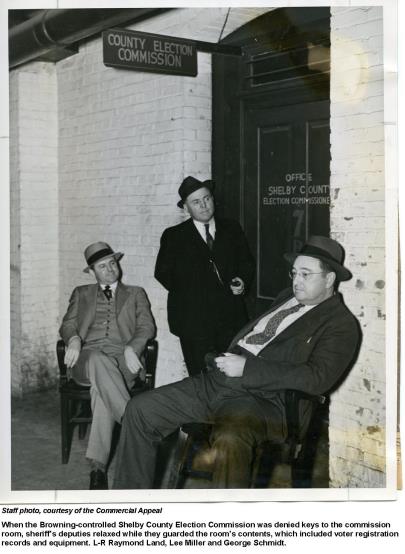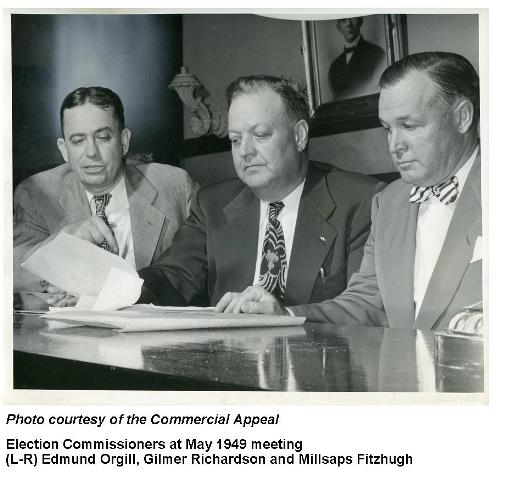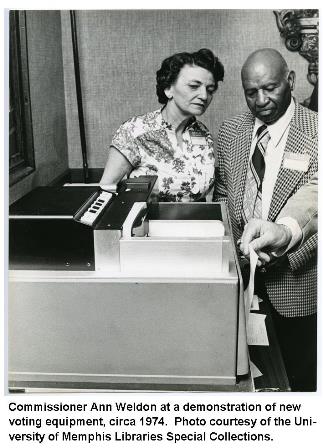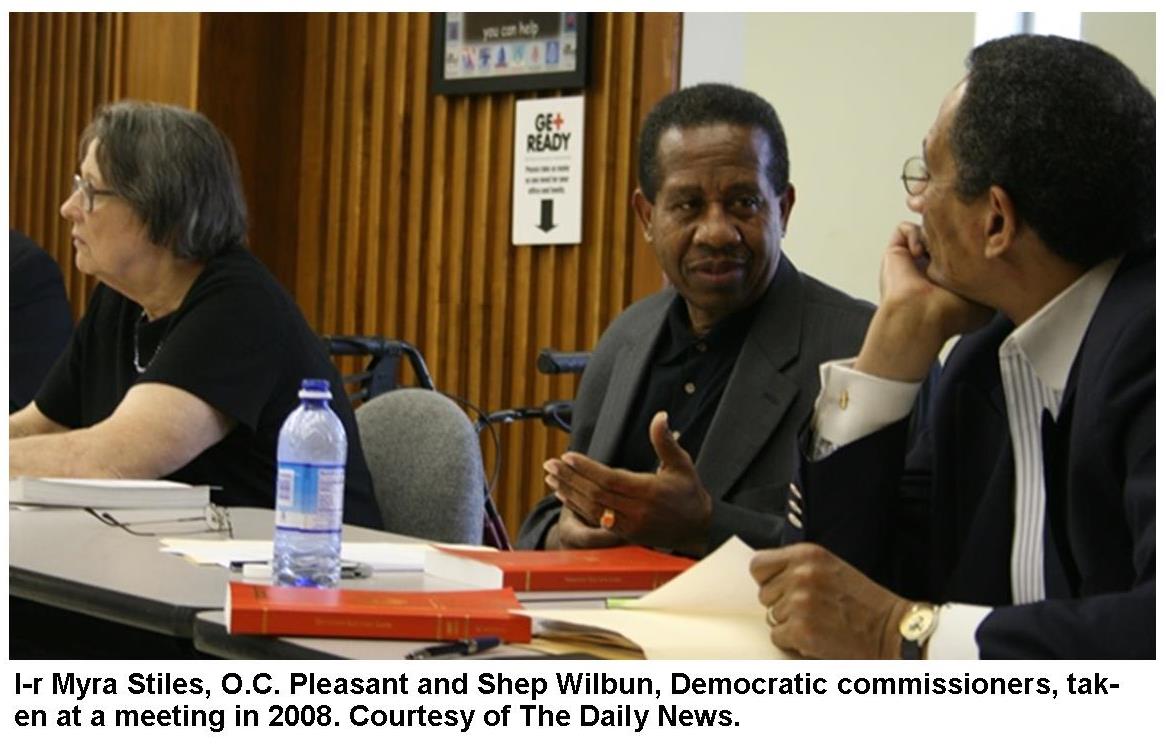- Voters
- Am I in Danger of Having My Voter Registration Cancelled?
- Register to Vote
- Check voter status & find your polling place at TNSOS
- Polling Location and Complete District Information
- What to Expect When You Vote
- Voting Absentee
- Change of Address/Replacement Card
- Maps
- General FAQ about voting
- Restoration of Voting Rights
- Voter ID Requirements
- Accessibility
- Poll Workers
- Candidates
- Elections
- Outreach
- SCEC
- NEW! Overdue Campaign Finance Reports
- SCEC Agendas & Minutes
- Elected Officials
- Maintaining the Voter Registration Rolls
- The O.C. Pleasant Jr. Operations Center
- Life Cycle of an Election
- Access & Security Policy
- Public Records Requests
- Staff Bios
- Turnout
- Voter Registration Statistics & Reports
- History of the Shelby County Election Commission
- History of Shelby County Election Equipment
History of the Shelby County Election Commission

In April 1907, the 55th General Assembly of Tennessee voted to create county election boards across the state. On June 4, 1907, the State Board of Elections appointed three men to the first County Election Commission in Shelby County. A.B. Carter, (D), the chairman, was joined by James Britt Dern (D), and T.G. Vinton, (R). Commissioners were, and still are, appointed for a two-year term. At that time, two members of every local commission were from the political party of the gubernatorial candidate who won that county. The remaining member was from the opposite party.
For many years, the election commission was largely controlled by politics. In 1909, a Democrat, H. Crump, was elected Mayor of Memphis. And although he served as mayor for only three terms, Crump, known as “Boss Crump,” created a political machine that made him a dominate force in Memphis politics for several decades. Not surprisingly, he had tremendous influence over the County Election Commission. Crump’s party often paid poll taxes (required by state law in 1880), to ensure votes, and registration rolls were sometimes manipulated.
At that, politics influenced the County Election Commission so much that it was jokingly called the “Crump Election Board.” In 1938, Governor Browning tried to nullify the strength of the Crump machine. He had planned to send a representative to verify the county voter registration rolls. The “Crump Election Board,“ made up of Lytle McKee (D), Joe Thompson (D) and Ross Matthews (R), had removed 4,946 names before Browning’s representative could act. At that time, Governor Browning arranged to have the commissioners relieved of duty and replaced them with three members who were loyal to him.
However, the new commissioners, Galen Tate (D), Sam Johnson (D) and David Hanover (R), were locked out of the County Election Commission’s headquarters because the Crump-controlled commissioners refused to hand over the office keys. For a short time, Shelby County technically had two election commissions. Ultimately, the State Board of Elections charged the Crump board with misdoings and after a few trips to the Tennessee Supreme Court, the Browning-appointed board took control.
During the next two decades, the election commission became more independent and embraced its responsibility for conducting fair and impartial elections. Those are the core values that the modern-day election commission upholds.
In 1968, the Legislature passed an act that increased the number of commissioners from three to five, and in 1969, the first five-member commission was appointed, and so it remains today.
Democrats were the majority on the Shelby County Election Commission for many years, until the early 70s, a time of change for other reasons. In 1971, Betty Smith (R) became the first woman appointed to the Shelby County Election Commission. In 1973, Leah Abbott (R) was appointed, marking the first time in the commission’s history that two women had been appointed.
The first black commissioner, Kathryn Bower (D), was appointed in 1975. This was the same year in which the commission was first chaired by a woman, Ann Weldon, who was Republican.
In 1977, due to a change in the Tennessee law, the party of majority of the Shelby County Election Commission was determined by the majority party of the Tennessee General Assembly, not the governor. This is still how the party make-up of the commission is determined.
In 1979, O.C. Pleasant (D) joined the Shelby County Election Commission. He remained on the commission until 2005, making him the longest serving commissioner in the commission’s history.

For a list of people who have served on the Election Commission since 1907,
please click here.
